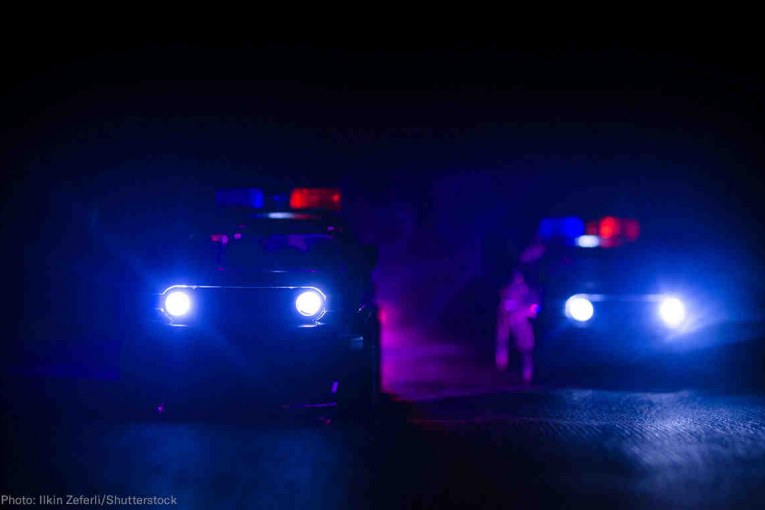

By Mike Meno
Johnnie Rush, a Black resident of Asheville, North Carolina, was brutalized by police simply for jaywalking late at night. His story is yet another in the seemingly endless, endemic tragedy of police violence against people of color. Unlike many of those, it was all caught on video.
Rush was walking home after a 13-hour shift washing dishes at a local restaurant when he was approached by two white police officers. It was after midnight, and one of the officers told Rush that he failed to use the crosswalk.
“All I’m trying to do is go home, man,” Rush said. “I’m tired. I just got off work.” “I’ve got two options,” replied Verino Ruggiero, an officer in training. “I can either arrest you or write you a ticket.” “It doesn’t matter, man,” Rush said. “Do what you got to do besides keep harassing me.”
Video of the exchange, and subsequent use of excessive force by police, was captured by a body camera worn by Chris Hickman, the officer who was training Ruggiero. Hickman orders Rush to put his hands behind his back. Rush curses and runs. The officers chase him and tackle him to the ground.
After they pinned Rush to the ground, Hickman beat his skull with a closed fist, shocked him with a Taser, and appeared to choke him. With officer Hickman’s hands around his neck, Rush shouts out  several times, “I can’t breathe.”
several times, “I can’t breathe.”
The officers who assaulted Rush charged him with second-degree trespassing, impeding traffic, assaulting a government official, and resisting a public officer.
Rush told local news outlets that the officers’ supervisor did not believe his account of what happened, even as they sent him to a hospital to treat his wounds. The charges were dropped, however, after a district attorney reviewed footage from Hickman’s body camera. Hickman was eventually ordered to turn in his gun and badge, according to reports. He ultimately resigned.
While the incident occurred on August 25, 2017, the public did not learn about or see the body camera footage of Hickman beating Rush until the recording was leaked to the Asheville Citizen-Times on February 28, 2018. The video’s publication six months after it was recorded sent shockwaves through the city of Asheville. But the community should never have had to wait that long. It should have seen the video directly following the incident.
Within a week of the video’s release, Hickman was arrested and charged with assault, and members of the Asheville City Council called for the police chief to resign. The FBI has now opened its own investigation.
This series of events shows racial bias at play, the scourge of excessive force by police, and both the power and limits of body camera technology to ensure police accountability. Injustice was captured by an officer-worn body camera but never released to the public. Without transparency, body cameras aren’t worth a damn.
But the Asheville police department doesn’t seem too concerned with transparency.
Asheville’s police chief, Tammy Hooper, disturbingly threatened to investigate and charge whoever “unlawful[ly]” leaked the footage, which only highlights how both the culture and policies of the police need to be changed. Had the footage not become public, Hickman may not have been charged with assaulting Rush. Without the footage, community members would not know to call for reforms. And reforms that include implicit bias training, deescalation training, and better data collection on stops and searches are sorely needed.
While there are good privacy reasons, in certain instances, for not making all body camera footage public, this is not one of those times. When a video captures police use of force – particularly when officers are abusing their power and brutalizing a community member, the public has a right to see that video. State laws, like the one we have in North Carolina, that prevent or limit the release of body-cam footage not only block transparency — they also block people’s right to justice.
Chief Hooper should concentrate on ending her officers’ racially biased and violent policing tactics rather than finding the leaker who made justice possible. It’s clear that the Asheville Police Department needs to do a better job at hiring good officers and training them to treat all communities with dignity. Hooper has an opportunity now to show communities of color that justice is not a hollow promise but a reality for all.
Mike Meno is Communications Director for ACLU of North Carolina

“subsequent use of excessive force by police, was captured by a body camera worn by Chris Hickman, the officer who was training Ruggiero”
It is of special note to me that the excessive force was used by the training officer. Officer Hickman was most likely trained with the same philosophy of “law and order” through the use of maximal force instead of the least amount of force needed to restore safety. It is also very troubling that the Police Chief would target the release to the public of the tape rather than the malfeasance of her own officer. This presents to me a strong argument for these tapes of police civilian actions being a matter of public record viewable by the public.